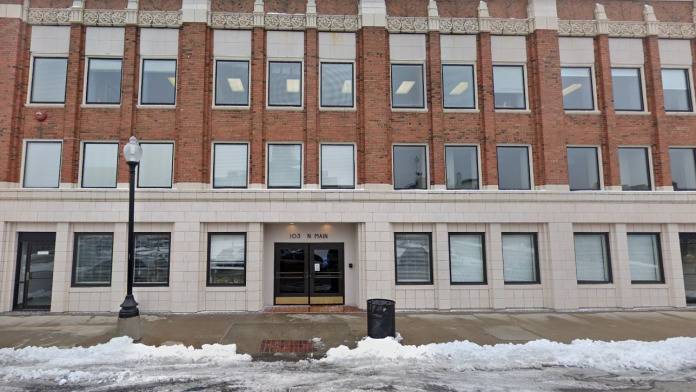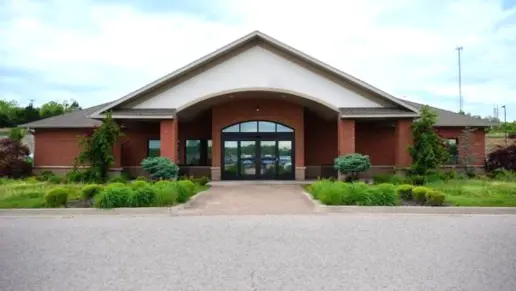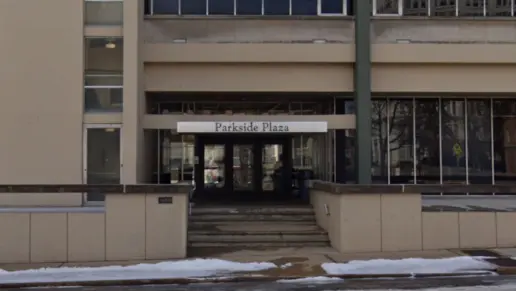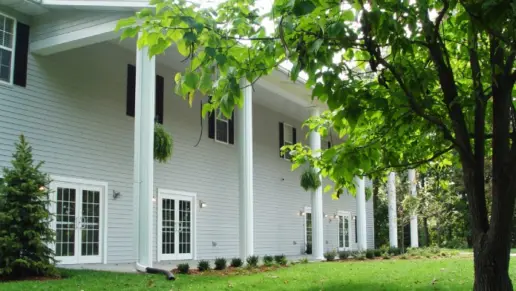90 day program (if you do what you are supposed to). Free due to grants. The staff was friendly and genuinely interested in my recovery. They do a lot of work with the drug court and family court, and they do expect you to attend your classes and call the drop line, as an ...
About Heartland Center for Behavioral Change – Independence Outpatient Clinic
Heartland Center for Behavioral Change in Independence serves adult men and women of the East KC area. CSTAR services provided are: Individual/Group counseling, community, peer, family support, medication treatment, diagnosis, assessments,treatment planning; SATOP, Offender Education Program, Clinical intervention and Weekend intervention programs.
Evidence Based Services: Moral Reconation Therapy (MRT), Living in Balance, and The Matrix Model. This program is funded by The Department of Mental Health.
A sliding fee scale is available for those who qualify for financial assistance.
Referrals: The Division of Probation and Parole and Division of Family Services, Area Courts and Self.
All clinical staff meet requirements by The Department of Mental Health.
Although we offer a variety of programs and services that have very specific goals, in all programs we believe in the healing power of collaborative and empowering
relationships. We know that “therapeutic relationship” is one of the most important
components of successful services. Our practice of acceptance, respect, and
compassion toward all, fosters the level of openness and honesty needed for
personal healing and progress. Our goal is to build a positive relationship with those
we serve beginning at the time services are started and to maintain this relationship throughout each person’s journey with us.
Latest Reviews
Rehab Score
Gallery

Location
Other Forms of Payment
Self-pay involves paying for treatment out of your own pocket. You can use savings or credit, get a personal loan, or receive help from family and friends to fund your treatment. If you don't have insurance or your insurance plan doesn't cover a specific program, self-pay can help ensure you still get the care you need.
Medicaid is a state based program that helps lower-income individuals and families pay for healthcare. Medicaid covers addiction treatment so those enrolled can use their coverage to pay for rehab. When a program accepts Medicaid the client often pays very little or nothing out of their own pocket.
Sliding scale payments are based on a client's income and family size. The goal is to make treatment affordable to everyone. By taking these factors into account, addiction recovery care providers help ensure that your treatment does not become a financial burden to you or your family, eliminating one barrier to care.
Addiction Treatments
Levels of Care
Treatments
The goal of treatment for alcoholism is abstinence. Those with poor social support, poor motivation, or psychiatric disorders tend to relapse within a few years of treatment. For these people, success is measured by longer periods of abstinence, reduced use of alcohol, better health, and improved social functioning. Recovery and Maintenance are usually based on 12 step programs and AA meetings.
Drug rehab in Missouri usually involves several phases: detox, rehab, and aftercare. The rehab phase may include a combination of inpatient and outpatient treatments, as the individual moves through a continuum of care on their recovery journey.
Opioid rehabs specialize in supporting those recovering from opioid addiction. They treat those suffering from addiction to illegal opioids like heroin, as well as prescription drugs like oxycodone. These centers typically combine both physical as well as mental and emotional support to help stop addiction. Physical support often includes medical detox and subsequent medical support (including medication), and mental support includes in-depth therapy to address the underlying causes of addiction.
Substance rehabs focus on helping individuals recover from substance abuse, including alcohol and drug addiction (both illegal and prescription drugs). They often include the opportunity to engage in both individual as well as group therapy.
Programs


Clinical Services
Research clearly demonstrates that recovery is far more successful and sustainable when loved ones like family members participate in rehab and substance abuse treatment. Genetic factors may be at play when it comes to drug and alcohol addiction, as well as mental health issues. Family dynamics often play a critical role in addiction triggers, and if properly educated, family members can be a strong source of support when it comes to rehabilitation.
Group therapy is any therapeutic work that happens in a group (not one-on-one). There are a number of different group therapy modalities, including support groups, experiential therapy, psycho-education, and more. Group therapy involves treatment as well as processing interaction between group members.
In individual therapy, a patient meets one-on-one with a trained psychologist or counselor. Therapy is a pivotal part of effective substance abuse treatment, as it often covers root causes of addiction, including challenges faced by the patient in their social, family, and work/school life.
Accreditations

The Commission on Accreditation of Rehabilitation Facilities (CARF) is a non-profit organization that specifically accredits rehab organizations. Founded in 1966, CARF's, mission is to help service providers like rehab facilities maintain high standards of care.
CARF Accreditation: Yes
Contact Information
103 N. Main
Independence, MO 64050


